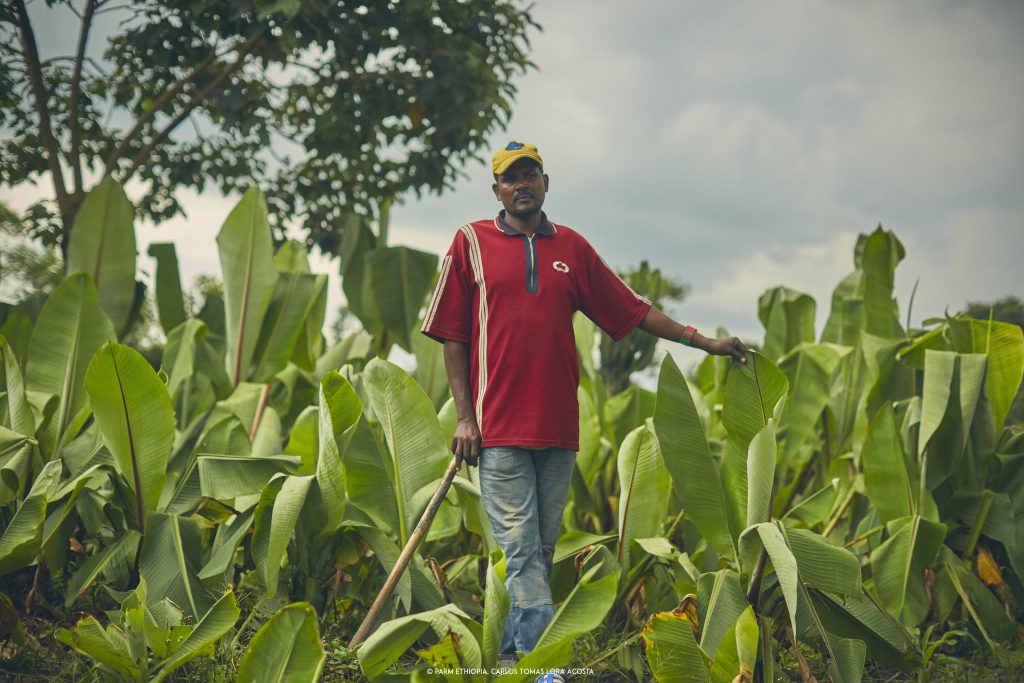Synergies and Tradeoffs in Sustainable Agriculture

The Food and Agriculture Organization of the United Nations (FAO) and the University of Maryland invite you to join an interactive webinar to learn about synergies and tradeoffs in sustainable agriculture.
The 2030 Agenda for Sustainable Development calls for a new transformational approach that looks across economic, social and environmental dimensions. Yet, in doing so, there are often contradictions in the implementation and policies that these goals actually advocate. Maximizing the synergies and minimizing tradeoffs is the best way to achieve a more sustainable agriculture.
Towards this goal, FAO is developing an analytical framework to support the implementation of sustainable food and agriculture principles that assesses synergies and tradeoffs across multiple dimensions of sustainability. As part of this process, a literature review has been prepared together with the University of Maryland, which outlines approaches on the topic across spatial and temporal scales.
Join the conversation on Twitter using #SustainableAg during the event.
Xin Zhang
Xin Zhang is currently working as an Assistant Professor at the University of Maryland Center for Environmental Science. The goal of Xin’s current research is to evaluate how socioeconomic and biogeochemical processes affect the global nitrogen cycle and the sustainability of agricultural production and, in turn, provide policy input on mitigating nitrogen pollution while meeting global food and biofuel demands. Xin’s research approaches are from both natural science, including the Earth System Model and atmospheric measurements, and social science, such as econometrics analysis. Collaborating closely with economists, modelers, and field experimentalists worldwide, Xin has published papers on various peer-reviewed journals, including Nature and Proceedings of the National Academy of Sciences, and have received research grants from multiple institutions, including Yale Center for Environmental Law & Policy and Cooperative Institute for Climate Science.
Xin received a B.S. in Environmental Science and a B.S. in Computer Science from Ocean University of China (OUC), an M.A. in Environmental Science from Peking University (2007), and a Ph.D. from Yale University (2012). In addition to the academic education, she has completed internships and projects at various national and international organizations, including the United Nations and China’s Ministry of Environmental Protection.
Elise Golan
Elise H. Golan is the Director for Sustainable Development for USDA. In this role, she provides leadership in planning, coordinating, and analyzing the Department’s various policies, programs and activities that impact and relate to sustainable agricultural, natural resource, and community development including food security.
Prior to this position, Elise served as the Associate Director of the Food Economics Division at the Economic Research Service, USDA. She received her Ph.D. in agricultural economics from the University of California at Berkeley and completed a post-doctorate fellowship focusing on environmental economics at the University of Haifa, Israel. Before joining USDA, Elise did consulting work for, among others, the World Bank, the International Labour Organization, and the California Department of Finance. She served as a senior staff economist on the President’s Council of Economic Advisers from 1998-99.
Dr. Golan’s research has spanned a wide range of sustainability issues, including land tenure and sustainable land management in the Sahel and West Africa; rice-straw burning and sustainable land management in California; regional and U.S. food-system modeling; food labeling and market development; food access, affordability, and security; and the distributional consequences of food policy.
Vimlendra Sharan
Director, FAO Liaison Office for North America
Vimlendra Sharan, an Indian citizen, joined FAO as Director of the FAO Liaison Office for North America on 1 December, 2016. Mr. Sharan brings with him more than two decades of national and international government leadership experience focusing on rural development, agriculture and food security issues.
Mr Sharan has worked with the Indian Government extensively in rural and tribal areas of Maharashtra and has also been actively involved in agriculture and food policy formulation working with the Ministry of Agriculture and Farmers Welfare in New Delhi. He comes to Washington from his previous posting as Permanent Representative of India to the Rome based UN Agencies where he served as the Vice President of the Word Food Programme (WFP) Executive Board, Chairman of International Fund for Agricultural Development (IFAD) Evaluation Committee, Asia Group representative on FAO Programme Committee, and a member of the FAO Council.
Mr Sharan holds a degree in Economics from University of Delhi, India and a MBA in Public Policy from University of Birmingham, UK.